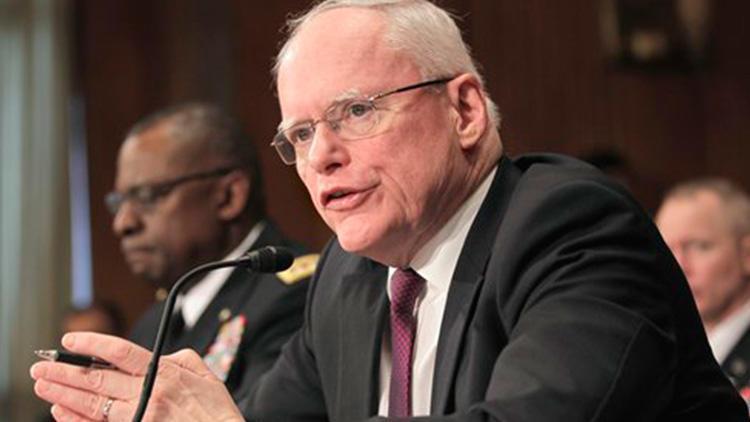Safe zone at heart of US talks in Ankara
Sevil Erkuş- ANKARA

Two U.S. representatives will travel to the Turkish capital and Switzerland to discuss security, terrorism and a possible safe zone in Syria, the U.S. State Department said on April 29.
James Jeffrey, the U.S. special envoy for the Global Coalition to Defeat the ISIL, and Washington’s special envoy Joel Rayburn will have talks in Ankara on May 1-2. Topics include efforts to find a political settlement in Syria, a possible safe-zone in the northwest of the country and efforts for humanitarian assistance throughout the war-torn country.
The State Department said talks will include “addressing Turkey’s legitimate security concerns, promoting stability and security in northern Syria as the U.S. military draws down its presence,” as well as the defeat of ISIL and implementation of UN Security Council resolution 2254, which demands a cease-fire and political solution for the country.
Jeffrey has spoken on this concern, saying earlier this month that the U.S. will continue working on an established safe zone along the Turkish-Syrian border from which YPG/PKK forces would withdraw to ensure it remains free of any threat to Turkey.
After visiting Turkey, the U.S. delegation will travel to Geneva where they will meet with other Syria envoys from Egypt, France, Germany, Jordan, Saudi Arabia and the United Kingdom.
In Geneva, Jeffrey and Rayburn will “discuss the latest developments in the ongoing Syrian conflict, with particular emphasis on rising violence in northwest Syria, the need for unhindered humanitarian assistance throughout the country and further support for UN efforts to foster a Geneva-based political process,” the State Department said.
Turkey stipulates its troops for a possible safe zone
Turkey and the U.S. have launched talks for a possible safe zone near the Turkish border in northern Syria, following the latter’s decision to withdraw most of its troops in the country. The idea responded to Turkey’s concerns regarding the threat posed by the YPG as Ankara voices unease about harassment fires launched by the Kurdish group in the region.
The U.S. initially proposed to deploy other coalition forces, excluding the possible presence of Turkish troops in the proposed safe zone, but Ankara dogmatized against such deployment. Turkey stipulated control of the zone by Turkish troops.
On the other hand, the coalition members which the U.S. appealed had no heart in such a commitment for a safe zone along a stretch of territory running from the east of the Euphrates River to the Iraqi border, Daily News has learned from sources familiar with the negotiations.
Washington “has seen that it would be almost impossible to consider such a zone without the presence of Turkish troops, but a final consensus has yet to be reached,” a Turkish official told Hürriyet Daily News on condition of anonymity.
Not only the recent statements by Jeffrey but also media reports suggest that the U.S. urges the YPG to allow “a limited number of Turkish forces” to deploy on the Syrian side of the Turkish border.
Other conditions raised by Ankara stipulates the withdrawal of all the YPG fighters from the safe zone which should have at least 20 miles (32 kilometers) of depth. Ankara vows to enforce a “safe zone” in northeast Syria on its own if talks with its NATO ally on the issue fail.
Most recent visits by Jeffrey have not yielded major progress on crucial topics which have been under discussion for more than three months, the official said.
The two countries are also engaging discussions since last year for the withdrawal of the YPG from Manbij town in northwest Syria as part of a deal sealed between foreign ministers of Turkey and the U.S. on June 4. The agreed roadmap stipulates the withdrawal of all YPG members from Manbij to the east of Euphrates and for the establishment of a new city council by the local Arabs. Turkey has long criticized the U.S. for prolonging the process and violating the 90-day timeline.
Although the majority of YPG fighters reportedly have withdrawn from Manbij, Ankara is urging the U.S. to clear all YPG members from the town.
















